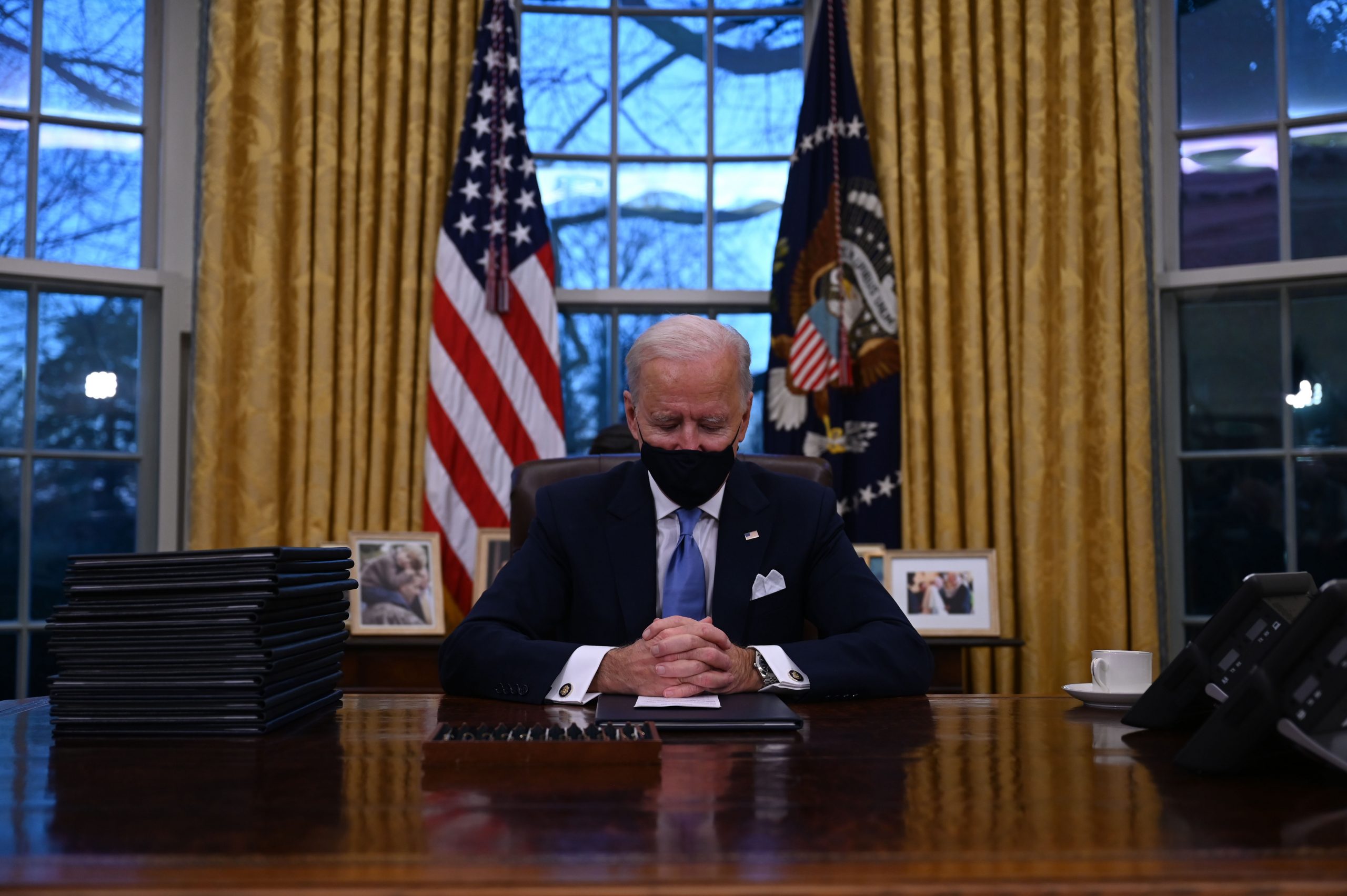The Biden Administration has acknowledged that the United States is in “serious competition” with China, adding that concrete countermeasures will be taken against their “aggressive and coercive” actions.
US will be taking measures to sustain its key military advantages and restore the country’s vital security partnerships, PTI reported.
Also Read: USS Nimitz moved from Gulf waters amid easing tensions with Tehran
Post the Trump Administration, the US-China relations are at an all-time low. China has also been facing backlash on account of the COVID-19 virus originating in Wuhan, a province in it’s country. Donald Trump had made it a point to openly accuse China and called COVID-19 a ‘Chinese Virus’.
Apart from this, China and the US are involved in a range of disputes which include trade, aggressive military confrontations in the South China Sea, the human rights violations in Taiwan and China’s claim of Taiwan as it’s own territory. China openly sees Taiwan as a rebel province that must be reunified with the mainland, even if takes military force to do so.
Also Read: Biden signs executive order to ensure legal immigration system operates fairly, efficiently
China has threatened to use military force to take over Taiwan and resents the US support for Taiwan. The US military is present in the South China Sea along with Taiwan and is viewed as a US campaign to curb it’s growth.
“Even as we see it through the lens of competition and positioning ourselves to compete and ultimately to outcompete with the Chinese through our own sources of strength, being our alliances, our partnerships, but also our domestic sources of strength – our workforce, our technology, our supply chain security,” State Department Spokesperson Ned Price said.
Price elucidated that China’s actions have hurt the American workers and threatened America’s alliances and influence in global institutions.
“When it comes to China more broadly, you have heard us talk about our strategic approach to Beijing. We are in serious competition with China. Strategic competition is the frame through which we see that relationship,” State Department Spokesperson Ned Price told reporters at his maiden news conference on Tuesday.
“Even as we see it through the lens of competition and positioning ourselves to compete and ultimately to outcompete with the Chinese through our own sources of strength, being our alliances, our partnerships, but also our domestic sources of strength – our workforce, our technology, our supply chain security,” he said.
Responding to a question, Price has urged Beijing to stop its military, diplomatic, and economic actions against Taiwan and engage in a meaningful and fruitful dialogue with Taiwan’s democratically elected leadership.
Also Read: Indian-American Neera Tanden’s confirmation hearing to lead OMB scheduled for next week
“We are working to ensure that we are approaching that relationship from a position of strength, and that includes engagement with our allies and partners,” she told reporters at her daily news conference. The Press Secretary, Jen Psaki at the White House elaborated that the Biden Administration’s approach towards China will be strategic.
Elucidating further, Price said that it is no coincidence that US President Joe Biden had started reaching out to America’s close allies in the Indo Pacific and Europe.
“We see our alliances, our partnerships globally as this force multiplier across any range of challenges, and that includes in our relationship with Beijing. So as a first step, we want to make sure that we are in lockstep with those allies, in lockstep with those partners, and then you can expect that there will be engaged in several areas with China,” he said.
Anthony Blinken, the US Secretary had reiterated the genocide being committed against the ethnic minorities in the Xinjiang region on his first day in office. This was a strong signal of the continuation of some of the tough stances taken against China by former President Donald Trump.
As predicted by many analysts, the Biden Administration’s biggest geopolitical challenge will be formulating it’s policies towards China.






